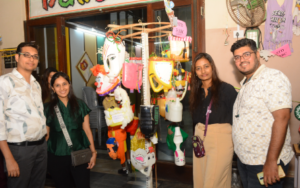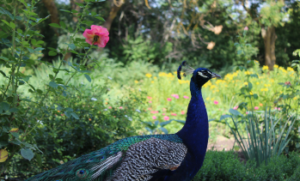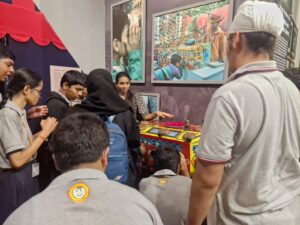Gardens are its nervous system
Since time immemorial, gardens have shared a symbiotic relationship with its people. A relationship meant for recreation, for food, for shelter, for oxygen, for medicine, for rejuvenation. A relationship which believes in co-existing, supporting, depending on each other. A relationship that enhances mental, physical, social, emotional, spiritual well-being.
It’s the garden which has been at the epicenter of all life, for all people. Human beings, birds, bees, butterflies, alike. However, it’s very purpose has changed over the time – and its size, too.

Today, gardens have become a beautification element rather than a necessity. In housing societies, commercial complexes, or public projects, gardens are designed to suit our needs over the others.
Exotic plants are widely used to ‘enhance’ aesthetics, thus displacing native plants and with them, biodiversity. Lawns have taken a centerstage to give a greener look over the grasses, medicinal plants that are lifesaving for many. Old trees are being uprooted, giving way to concrete pathways or appeasement structures, dismantling homes of countless life-forms from birds, insects, that depend on them for food, shelter. Colourful leaves that make a statement are chosen over flowers, which are useless for attracting any pollinators.
While we may imagine a garden to be a huge, open public space, it is now confined to our buildings. Sometimes to our windows. Parks are becoming private and individual.
This change brings a greater responsibility for its residents. Of restoring the ecosystem one plant at a time. Of creating a microcosm for other living beings one garden at a time.
But what’s in it for us? Why should I care about plants, birds, or bees? Well, without them, our existence too is in jeopardy. Without nature’s humble pollinators, we will have nobody to propagate our food. Without the old tree cover, we won’t have clean air or shade to escape from the sweltering heat. Without the humming sounds of birds and fluttering of butterflies, we won’t have mental peace. We have much more to lose than them.
The habitat loss created by urbanization and consumerism is making the biodiversity vulnerable and dependent on us. Though, this trend can be reversed if we stand united in this battle. If each housing societies makes informed, meaningful choices to build or transform garden spaces into sanctuaries for its people, we will be able to create an equal, hospitable environment for all. Be it a building park or an individual’s home.
The idea of a garden should be barter, not banish. To shape the way we live, play, enjoy and do just anything.
By Dipti Agarwal , Founder and Chief Gardening Officer, Peepal. Resident of Kemps Corner
Mobile: +91 7400068705. Email: dipti.agarwal@peepal.one | Website: https://peepal.one/
Instagram: peepalindia





